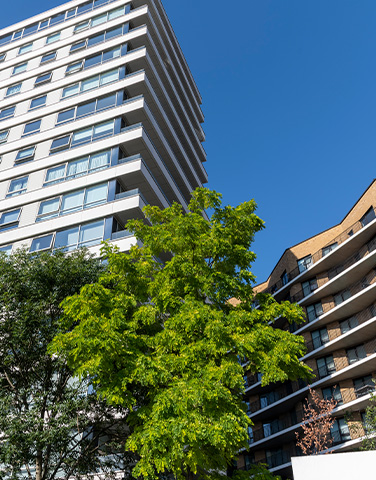
Vista Tower – (another) order in the court!
The decision in Grey GR Limited Partnership v Edgewater (Stevenage) Limited and others (2025) (known as the Vista Tower case) was handed down at the end of January. It was the first time that the FTT had considered the issue of Remediation Contribution Orders (RCOs) since the high-profile Triathlon Homes case early last year.
Given the recent flurry of BSA related cases, this Vista Tower case may already feel like “old news”. The judgment of the FTT (although not binding) does however provide valuable insight and marks a significant development in the interpretation and application of the “just and equitable” test in relation to the grant of RCOs under Section 124 of the Building Safety Act 2022 (BSA) and it will be interesting to see how this is further developed by the Court of Appeal in the widely anticipated Triathlon Homes appeal.
Background
The recent RCO decision is not the first BSA decision in relation to Vista Tower. In The 12 BSA cases of Christmas we discussed the much publicised grant of the Vista Tower Remediation Order (RO) in April last year – noteworthy for being the first ever application by the Secretary of State for a RO under s.123 of the BSA. The Tribunal concluded that even though Grey GR had commenced works to remedy the significant safety defects that had been identified (particularly in relation to the windows and panels on the exterior of the tower) a RO should be made to ensure that the issues were fixed within a mandated timeframe.
In parallel proceedings, Grey GR applied for a RCO with the intention of seeking a contribution towards the cost of the remediation works against an original 17 respondents although this was later expanded to 96 entities “associated” with the original developer, Edgewater, by virtue of sharing at least one director.
The RO and RCO elements of the Vista Tower case provide a good illustration of how landlords who have themselves been required to undertake remediation works may then seek to recover the cost of doing so from the original developer and associated parties.
The tribunal’s decision
The tribunal ultimately found that it was just and equitable to make a RCO in the substantial sum of £13.26 million against both Edgewater and 75 of the 96 respondent companies being those that satisfied the ‘associated’ test under BSA (after forensic analysis of the complex corporate structure).
The RCO was made in joint and several terms with the tribunal deciding that an award on this basis was more appropriate than an allocation of individual amounts against specific respondents.
The tribunal’s decision considered, in detail, the involvement of the developers and their associated companies in the original construction and conversion works and whether it was just and equitable to assign costs to those associated bodies corporate. This will be of particular interest to developers as well as to those who may seek a RCO. Helpfully, the judgement includes a schedule setting out each of the respondents, whether they are subject to the RCO and the reasoning in each case.
The case emphasises the tribunal’s broad discretion as to whether to grant a RCO as well as confirming, as set out in the original Triathlon Homes decision, that the RCO is a non-fault remedy.
Order, order, order – an RO, an RCO and maybe now a BLO
In January this year, the High Court issued its first-ever Building Liability Order (BLO) under section 130 of the BSA, following a hearing in the case of 381 Southwark Park Road RTM Company Ltd and others v Click St Andrews Ltd and another [2024] EWHC 3569 (TCC). For further detail please see The 12 BSA cases of Christmas.
Grey GR have also issued proceedings in the Technology and Construction Court seeking a BLO against the original developer and two other respondents. It will be interesting to see whether and if so, how, the Tribunal’s granting of the RCO in this case will affect Grey GR’s BLO proceedings.
What it does however show is that the BSA provides a triumvirate of options for parties dealing with relevant defects and the fact that these potential remedies are not mutually exclusive is important when considering a litigation strategy.
How we can help
If you would like to discuss the implications of the Act please contact our Building Safety Act team.
Talk to us about
Related services






 Download PDF
Download PDF










